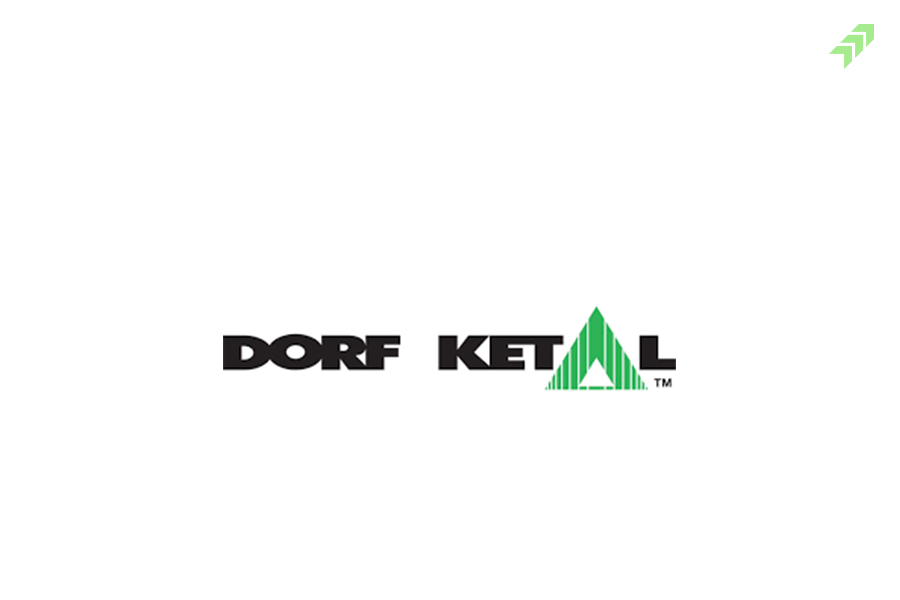Discount brokers
A discount broker is a stockbroker who executes buy and sell orders at lower commission rates than a full-service broker. These brokers, however, do not provide their clients with investment advice, market analysis, research, tax planning, or estate planning services. Discount brokers, who are now synonymous with online brokerages, have benefited from increased Internet penetration.
Derivative
A derivative contract is a financial contract that derives its value from an underlying asset or group of assets. A derivative contract is an agreement between two or more parties that can be traded on an exchange or over-the-counter market. Bonds, stocks, commodities, currencies, interest rates, and so on are some of the most common underlying assets for derivatives. Derivatives prices are determined by the movement in prices of the underlying asset. Derivatives can be used to manage risk, speculate on the direction of an underlying asset, or provide leverage to holdings.
Dynamic asset allocation funds
Dynamic asset allocation funds are actively managed strategies that allow fund managers to invest in a mix of debt and equity and adjust based on the stock market’s macro trend and current economic conditions. These funds do not attempt to outperform pure equity strategies. Investors prefer dynamic funds for their consistent returns and asset diversification. Because actively managed funds involve a dedicated professional team in research, they are more expensive to run than passively managed funds.
Dividends
When a company makes a profit, it either keeps the entire profit for future expansion or rewards its shareholders for the capital they provided to run the business. The board of directors makes the decision on how much dividend to pay to shareholders. Company dividend policy too plays an important role in dividend distribution, and it is not required for a company to distribute dividends. Assume a company has been in business for ten years and has earned handsome profits in many of those years, but recently has been unable to earn profits in the last few years for whatever reason. The company can still pay dividends by using its reserves or incurring debt.
Day trading
Day trading is the practise of buying and selling stocks and other financial instruments on the same day. In day trading, all market positions are squared off before the market closes. Day trading is also known as intraday trading. With the rise in popularity of electronic trading and margin trading, people’s perceptions of day trading have shifted. It is now very simple to start day trading. There is only one distinction between regular and intraday trading. There is no delivery of stocks in day trading.
Dividend Payout Date
Also known as payable data, the day on which a declared stock dividend is scheduled to be paid to eligible investors according to the company’s register.
Demat account
A Demat account enables you to electronically hold your securities such as stocks and bonds. There are two depositories in India that provide such services; Central Depository Services Limited (CDSL) and National Securities Depository Limited (NSDL). It is similar to a bank account but a Demat account is used to store securities in electronic form. When you place a buy / sell order for a security, it gets automatically credited/debited to/from your Demat account, given that the basic requirements are fulfilled. This allows you to trade without needing to physically transfer share certificates as it was done before the introduction of the Demat account. It expedites transactions and reduces costs.
 Depository and depository participant
Depository and depository participant
A depository is a institution that holds securities in De-Mat form. There are two depositories in India; The National Securities Depository Limited (NSDL), and the Central Depository Service (India) Limited (CDSL). Before beginning operations or trading in the market, every Depository Participant (DP) must be registered with this Depository. Intermediaries act on behalf of their clients in a variety of securities at the Depository. The intermediaries are known as Depositories Participants (DPs). Stockbrokers, banks, non-banking financial companies (NBFCs), and any other type of organisation authorised by the Securities and Exchange Board of India can be designated as DPs.
Debentures
A debenture is a marketable security issued by a company or organisation to fund long-term operations and growth. Debentures are similar to bonds, but unlike bonds, they are not collateralized and are unsecured, which means that investors have no claim to the company’s assets if it defaults. Debentures are typically issued by large corporations with triple A credit ratings because repayment is solely based on the creditworthiness of the issuing organisation. There are various types of debentures, such as convertible and non-convertible debentures, redeemable and irredeemable debentures, and so on.
Delivery date
A delivery date is the deadline by which the underlying commodity for a futures or forward contract must be delivered as per the terms of the contract. Mostly derivative contracts are used for purpose of hedging sharp movement in prices of underlying asset and are closed with an offsetting position before the actual delivery date.
Direct listing
A direct public offering, also known as a direct listing, is a way for a company to go public without the assistance of an investment bank to underwrite the shares. Alternatives to initial public offerings include direct listings (IPOs). Without the safety net of an underwriter, a company can raise capital more quickly and cheaply, but the stock price on the day of listing is entirely dependent on market demand and potential market swings.
Dividend Declaration Date
This is the date at which a company announces its next dividend payment
Dial-n-trade
Today, with advancements in technology, you can get tasks done without moving an inch. Dial-N-Trade comes in handy when you are traveling or in a rush and can’t get to our platforms but you don’t want the opportunity to be missed. In that scenario, Orders can be placed over the phone while on the go. This can be done by simply calling Mansukh Finance.
Dilutive shares
It is the total number of common shares, after all the possible conversion, will be outstanding and available for trading on the open market. Fully diluted shares include both those that are currently issued and those that can be obtained through conversion. This number of shares is required for a company’s EPS calculations because using fully diluted shares increases the share basis in the calculation while decreasing the dollars earned per share of common stock. When analysing a company, it is critical to understand the distinction between basic and fully diluted shares, as well as what this means for key metrics like EPS. Convertible bonds, employee stock options, and warrants are examples of dilutive securities.
Dividend stripping
Dividend stripping allows investors to benefit from a double tax break. Investors buy securities such as stocks or mutual funds before the dividend is declared in order to maximize tax benefits. After the dividend is declared, they sell the securities when their price falls below the purchase price. This is referred to as dividend stripping. This activity results in tax-free dividends for the investor. However, because the sale occurs after receiving the dividend at a lower price than the purchase price, a capital loss occurs. Such losses can be offset against other capital gains income.
Dividend yield
Investors looking for consistent income should consider investing in a dividend yield fund, which is made up of stocks of companies that pay out regular dividends. The primary goal of dividend yield mutual funds is to invest in stocks that pay out regular dividends to investors rather than to select stocks for capital appreciation. These funds typically invest 75-80 percent of their capital in companies that pay high dividends. As stated in the offer document, the investment objective and portfolio risk may differ.
Debt Funds
Bonds and other debt securities are the primary investments of debt mutual funds. Debt mutual funds are also known as income funds. These funds invest in short-term and long-term securities issued by public financial companies and governments, such as high dividend-paying stocks, government securities, and corporate bonds, certificate of deposits, money market instruments, and debentures. These funds provide regular and consistent income while also preserving capital. Income funds are appropriate for investors seeking consistent and predictable income. These funds can be classified based on the maturity of their securities and their management strategies. They are, however, subject to credit risk
Dynamic bond fund
Dynamic funds are open-ended debt mutual funds that invest over different duration. These funds are appropriate for a 3-5 year investment horizon. These funds are able to invest for a variety of time periods. One of the primary objective is to provide best possible returns in both falling and rising interest rate scenarios. These funds change the duration of the fund based on market conditions. The role of the fund manager is critical because the fund’s performance is entirely dependent on the portfolio manager of the fund house
Devaluation
Devaluation of currency acts as a plus point for export Driven economy. It is the downward adjustment in a country’s exchange rate that results in lower values for its currency. Currency depreciation makes a country’s exports less expensive, encouraging foreign nations to purchase more of the devalued goods. Here come the twist, Devaluation also raises the price of foreign products in the devaluing country, encouraging citizens to prefer domestic products over foreign imports. Consider India, which meets its energy needs by importing crude and natural gas from other countries. Currency depreciation could help them become more competitive in exports, but the gain would be offset by higher import bills.
Demand-pull inflation
Here comes the demand-supply lesson. When too many people chase few goods, the prices of that product will increase according to its market demand. Demand–pull inflation exists when demand for a good or service outstrips supply of that product. When demand exceeds supply, there is upward pressure on prices, resulting in inflation. Government spending, economic growth, easy monetary policy is some of the factor which could lead to demand pull inflation.
Dark pool
A dark pool is a privately organised financial forum or exchange where securities are traded. Dark pools enable institutional investors to trade without risk until the trade is executed and reported. The majority of dark pool trades are large orders made by financial institutions that are offered away from public exchanges, allowing such trades to remain confidential and out of the general investing publics view. They are generally not accessible to the general public, but in some cases, retail investors and traders can gain access to them indirectly through retail brokers. Dark pools are frequently regarded as dubious enterprises by the general public due to their lack of transparency and unusual name.
For example, if a mutual fund places a large open market order, the market price of the company stock is bound to change. There will be no volatility or market impact if it trades privately.
Dark Pools are mainly of three types, which are:
- Independent
These dark pool providers are operated by independent or single firms. These providers provide the clientele with low transaction charges and also bring down the costs that occur due to less liquidity.
- Broker-Dealer Based
Where clients of the broker interact, most commonly with other clients of the broker in conditions of anonymity
- Exchange Based
Exchange-based providers give access to retail traders who are interested in over-the-counter or off-the exchange trading. These usually provide an increased level of liquidity to the participants in the market while offering an exchange infrastructure.
DuPont analysis
DuPont analysis is a framework for analysing fundamental performance that is used to break down the various drivers of return on equity (ROE). A DuPont analysis is used to assess the various components of a company’s return on equity (ROE). This enables an investor to determine which financial activities are most responsible for changes in ROE. An investor can use this type of analysis to compare the operational efficiency of two similar companies. Managers can use DuPont analysis to identify potential strengths and weaknesses.
ROE = (Profit margin)*(Asset turnover)*(Equity multiplier)
(to be written in formula manner, hyper link provided)
(Net profit/Sales)*(Sales/Average Total Assets)*(Average Total Assets/Average Equity)
(Net Profit/Equity) Or Profit/Sales*Sales/Assets = Profit/Assets*Assets/Equity or ROS*AT = ROA*Leverage
Net Profit Margin
Any company’s profitability is most often the first point of reference for investors and creditors when analysing the company and its growth model. Simply put, net profit margin measures the amount of net income or profit generated as a percentage of revenue. Investors can determine whether a company’s management generates enough profit from its sales and whether operating and overhead costs are kept under control. One-time events, such as the sale of an asset, can have an impact on net profit margin.
Net profit margin = Net Profit / total sales of the company
Total asset turnover
Total asset turnover is used to assess how efficiently a company uses its assets and allocates its resources. It is the basic comparison of the company’s total sales or revenue to its total assets. A higher total asset turnover ratio indicates to financial analysts that the company is successful in utilising its assets to generate additional sales. This will have a positive impact on the company’s overall ROE.
Total assets turnover = Total sales (or Revenue) / Total assets
Equity multiplier
It is used to determine whether the company is using optimal debt to support its operations and whether any excess debt is not pumped in, which can reduce the equity multiplier. This component will enlighten financial analysts whether or not the company is using additional debt to boost its ROE and provides a true and fair picture.
Equity Multiplier = Total assets / Common Equity
Pros of Dupont analysis.
A calculation of simple ROE can reveal quite a bit of a company, but it does not provide the entire picture. This ratio will provide the shareholders with the net return on their investment; however, it will not assist the company’s management in understanding and analysing the various areas that require improvement in order to improve the company’s overall ROE. On simplifying ROE formula as per the DuPont model, management and investors can conduct a thorough analysis of the company’s operations and focus on improving their profit margins in accordance with industry standards or their asset turnover ratio. It will also tell if the company is using too much debt to boost ROE, which can lead to solvency or liquidity issues if the company is unable to meet its debt obligations.
Limitations of DuPont analysis?
DuPont analysis, like any other method of analysis, has flaws and limitations. The primary limitation of this mode of analysis is that the data required for such a model is based on company information. There always lies a possibility that the data will be manipulated, and thus the resulted analysis will not provide an actual picture of the company’s position. Another disadvantage of DuPont analysis is that it can only be used to compare two or more companies in the same industry. A comparison across industries, once again, will not provide an accurate analysis of the company’s position and may mislead investors or creditors.

20
Per order + Get Instant Pledge Benefits* + Zero delivery Brokerage
10
Per order only (No hidden charges)
Open FREE Demat Account in less than 10 minutes (Commodity & Currency)
20
Per order + Get Instant Pledge Benefits* + Zero delivery Brokerage
10
Per order only (No hidden charges)
Open FREE Demat Account in less than 10 minutes
20
Per order + Get Instant Pledge Benefits* + Zero delivery Brokerage
10
Per order only (No hidden charges)


















